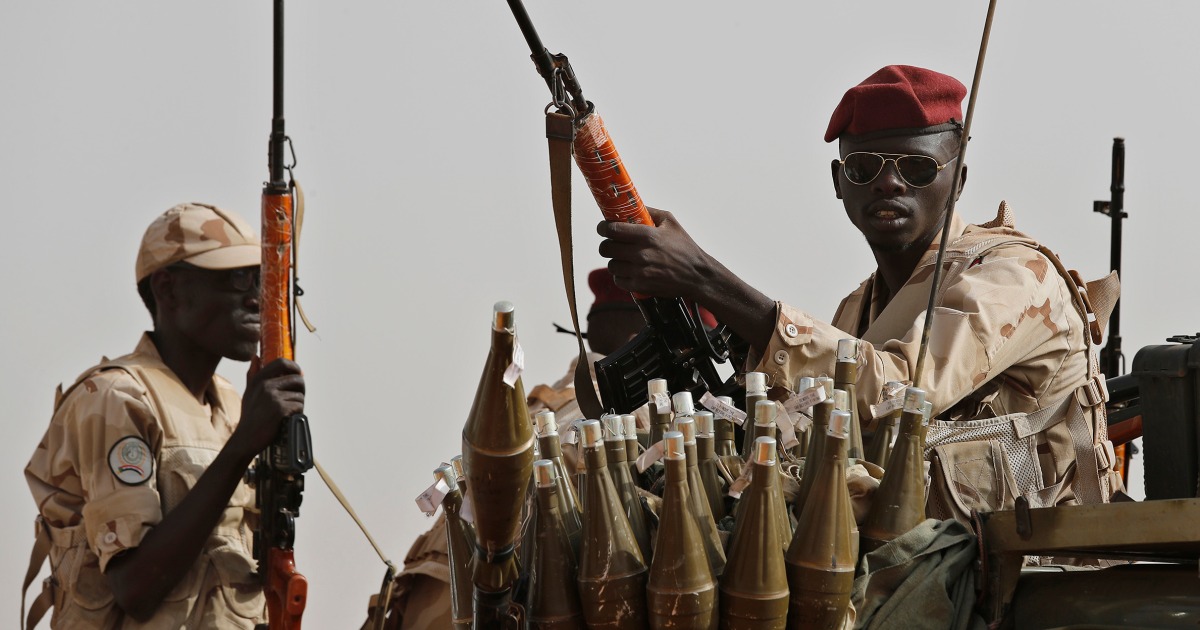Sudanese Paramilitary Forces Assault Displaced Camps Amid Deepening Famine Crisis
Sudanese paramilitary forces launched a brutal attack on displacement camps in Central Darfur on Tuesday, killing at least 100 civilians and wounding dozens more. The assault targeted makeshift shelters housing thousands of famine-affected families, marking a dangerous escalation in Sudan’s ongoing conflict. Humanitarian organizations warn this violence compounds an already catastrophic food insecurity crisis affecting over 25 million Sudanese.
Attack Details and Immediate Aftermath
Eyewitnesses described a three-hour siege beginning at dawn, with armed militants torching tents and firing indiscriminately at civilians. The Kalma and Otash camps—home to over 150,000 displaced persons—bore the brunt of the assault. Satellite imagery analyzed by the Sudan Conflict Observatory shows over 300 structures destroyed.
“This wasn’t collateral damage—it was a systematic clearance operation,” said Dr. Amira Hassan, a researcher with the African Conflict Analysis Group. “The attackers blocked escape routes while targeting food storage units, which suggests starvation is being weaponized.”
The attack coincides with:
- UN reports of 4.9 million Sudanese facing emergency-level hunger
- A 300% increase in malnutrition cases among children under five
- The suspension of WFP aid convoys due to security concerns
Broader Context of Sudan’s Collapsing Security Situation
The Rapid Support Forces (RSF), the paramilitary group allegedly responsible, has intensified operations since April 2023 when fighting erupted between Sudan’s military factions. Over 12,000 civilians have died in the conflict, with 7.1 million displaced—the largest internal displacement crisis globally.
“This represents a horrifying new low,” stated UN Humanitarian Coordinator Clementine Nkweta-Salami. “When armed groups attack those already facing famine, they’re not just breaking international law—they’re shredding humanity’s moral fabric.”
Meanwhile, the Sudanese Armed Forces (SAF) claim the RSF operates with foreign backing, a charge denied by RSF commanders. Both sides have restricted aid access, creating what Medecins Sans Frontieres calls “a perfect storm of violence and deprivation.”
Humanitarian Fallout and Aid Challenges
The attack has paralyzed relief efforts in a region where 1 in 3 children suffer acute malnutrition. Before the assault, agencies reported:
- Only 23% of required food aid reaching Darfur
- 83% of health facilities non-functional
- Cholera spreading through 12 states
International Response and Accountability
The UN Security Council convened an emergency session, with several members pushing for sanctions. However, diplomatic efforts remain hampered by competing geopolitical interests in the region.
“Accountability mechanisms have failed spectacularly,” noted human rights lawyer Fatima Ibrahim. “The International Criminal Court reopened its Darfur investigation, but without arrests or asset freezes, perpetrators operate with impunity.”
Meanwhile, grassroots organizations highlight overlooked dimensions:
- Women and girls facing heightened sexual violence during camp raids
- Ethnic targeting of Masalit communities in West Darfur
- The looting of $60 million in medical supplies since conflict began
Future Outlook and Calls to Action
With Sudan’s rainy season approaching in June, health experts warn of malaria and waterborne disease outbreaks in overcrowded camps. The FAO projects a 40% drop in agricultural production, exacerbating food shortages.
Humanitarian workers emphasize three urgent needs:
- Immediate ceasefire agreements allowing safe aid corridors
- Increased funding for Sudan’s $2.7 billion aid appeal (currently 17% funded)
- Robust monitoring to prevent diversion of relief supplies
As global attention fragments across multiple crises, Sudanese activists urge sustained engagement. “The world watched Darfur in 2003—will it look away now?” asked displaced community leader Yousif Abdelrahman. “We’re not statistics. We’re human beings begging for the chance to survive.”
Readers can support verified relief efforts through the Sudan Humanitarian Fund or by contacting their representatives to demand political action. The coming weeks will test whether international institutions can mount an effective response before more lives are lost.
See more CNN Headline


